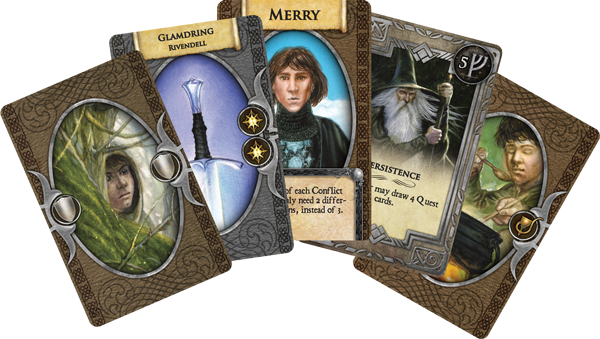
Each hobbit has a special ability that gives them an advantage in certain situations. Sam, for example, is resilient, and can only ever take one point of damage when rolling the die. In situations where you know damage is likely to occur, Sam is a good choice to take the brunt of it. By planning together how to best use each hobbit's special rules, the group can better prepar to face the challenges the game presents. Other cooperative elements like card trading and healing add to the strong sense of teamwork.
Co-op has been around for decades in video games, but for tabletop games, it was very rare until the past six or seven years. Lord of the Rings is one of the oldest fully cooperative games, and was unique for many years as a result. As more and more excellent co-op titles have been released, the appeal of Lord of the Rings has faded as a result. It is still an excellent game, and very much captures the theme of the source material, but the game mechanics are not nearly as elegant and intuitive as those of, say, Pandemic.
Still, Lord of the Rings is a strong cooperative board game design. The innate appeal of the theme, as well as the beautiful art and impressive modular game boards, are more than enough to compensate for the often fiddly mechanics. Those fans of Middle Earth who are looking for a teamwork-based game, rather than an epic clash between the armies of good and evil, would do well to search for a copy of Lord of the Rings.